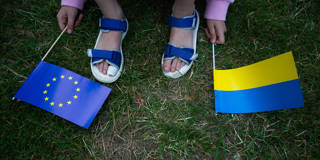
The Ukraine War and European Identity
With the war in Ukraine well into its second year, European politicians from across the political spectrum are still eager to show their support for the country. But a battle for the soul of Europe is brewing beneath the surface, and next year’s European Parliament elections could serve as its first battleground.
BERLIN – The European Parliament elections are still a year away, but political parties across the European Union have already shifted to campaign mode. While the election will undoubtedly feature a wide range of views on climate change, immigration, and religion, there is one issue that seems to unite politicians of all stripes: the war in Ukraine.